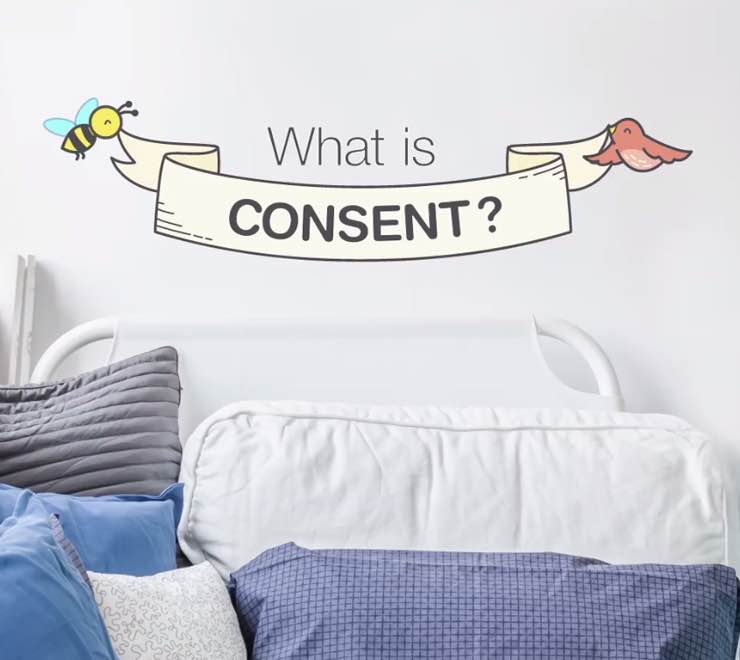What is masturbation? Is it OK to masturbate? Where can I find more information about sexual health and well-being? In this article, Kids Help Phone (KHP) shares general answers to some common questions about masturbation for you to consider as you navigate your health and wellness.
KHP would like to remind you this article is for information purposes only. You can read it to learn more about masturbation as it may relate to a person’s overall well-being. We also want to let you know the professional counsellors and trained, volunteer crisis responders at KHP are available to support you as you learn about mental health and wellness. If you have questions / concerns that are more about physical / sexual health (e.g. if you’re seeking medical advice, have questions about sexually transmitted infections (STIs), etc.), you can ask us for help finding resources, contact a health-care professional or search for supports on Resources Around Me.
KHP uses the word masturbation in this article because it’s common and often recognizable. However, language is always evolving, and some people may use different words. KHP supports you in using the terms that are best for you.
What is masturbation?
Masturbation is when a person touches / stimulates their genitals or other areas of their body in a way that feels good to them. Masturbation can be a way to explore your body, sexuality and more. When people masturbate, they may experience:
- sexual arousal (feelings of pleasure)
- ejaculation (release of fluids from genitals)
- orgasm (a feeling of pleasure at the peak of sexual arousal)
- a range of emotions (e.g. relaxation, guilt, happiness, sadness, loneliness, etc.)
Why might some people choose to masturbate?
Some people may choose to masturbate for a variety of reasons. For example, they may masturbate to help themselves:
- lower stress
- relax
- release tension
- feel pleasure
- feel more empowered / confident
- fall asleep
- learn more about their body, sexuality and likes / dislikes
- feel closer to a partner / learn about a partner’s likes / dislikes (e.g. by masturbating together or in front of each other (with enthusiastic consent, of course))
Is it safe to masturbate?
It depends on the circumstances! You may find that masturbation is a safer / lower-risk sexual activity for you than others (e.g. when it comes to things such as unplanned pregnancy, STIs, etc.) and that there are still things you can do to increase your safety. You can learn more about safety during masturbation from AboutKidsHealth.
When exploring any sexual activity, safety, privacy, boundaries, enthusiastic consent and more are important factors. This may include finding times, places, products, etc. to engage in activities that are safest, most comfortable, etc. for everyone involved.
If you have questions / concerns about sex, safety, your health, etc., you can connect with a health-care professional, sexual health clinic or a resource that’s best for you.
Does everyone masturbate?
Masturbation is common. People may choose to masturbate no matter their age, gender identity, sexual orientation, religion, background, abilities, relationship status, etc. Some people may masturbate occasionally or often, while others may do it rarely or not at all.
Is it OK to masturbate?
Only you can answer this question for yourself! It’s based on what’s best for you. Internal and external factors (e.g. beliefs, opinions, myths, etc.) may influence how you and people around you think and communicate about masturbation. The choice to masturbate, or not to masturbate, is personal and yours to make. You can discover more information about masturbation from Planned Parenthood Toronto.
Where can I find more facts about masturbation?
If you’re seeking more information about physical and / or sexual health, you can contact a health-care professional / sexual health clinic or search for supports on Resources Around Me. For additional facts, you can also explore SmartSexResources, Sex & U and the Centre for Sexuality.






















